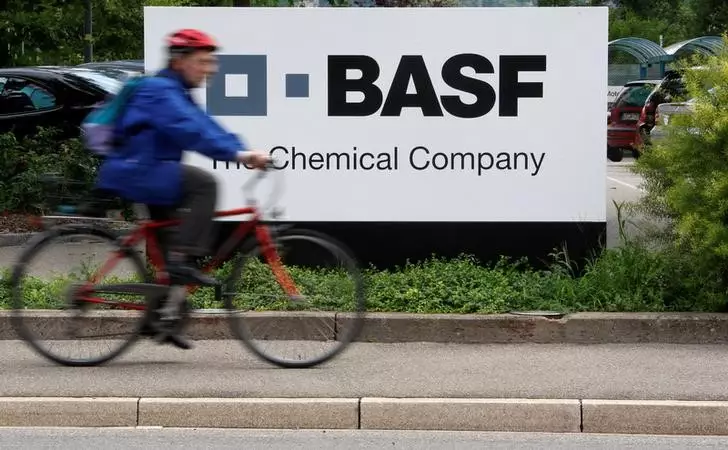The outlook for BASF in 2024 paints a bleak picture for investors, as the company’s preliminary figures signal a significant downturn in earnings. As the leading German chemical giant grapples with mounting impairments and hefty restructuring costs, its earnings before interest and taxes (EBIT) are slated to drop to €2 billion. This represents a stark deviation from analyst expectations, which anticipated figures closer to €3.2 billion, and it also falls short of the €2.2 billion reported in 2023. Such a substantial discrepancy raises questions about the company’s operational resilience and strategic direction in an ever-evolving market landscape.
BASF’s predicament has been largely attributed to non-cash impairments, particularly within their Surface Technologies segment, which includes battery materials. The company reported impairments totaling €1.9 billion, a figure that embodies the ongoing struggle to adapt to shifting market conditions. While there were improvements in sales volumes and a slight recovery in pricing strategies, these gains were simply not enough to counterbalance the burdensome costs that plagued the Chemicals segment, particularly during the last quarter of the year.
This paints a concerning narrative for BASF, as the failure to align operational performance with market demands indicates systemic issues within the company. Internal restructuring efforts—aimed at curtailing costs and realigning business strategies—have added to the financial strain, revealing a need for more robust planning and execution.
Despite these challenges, BASF’s Agricultural Solutions division has emerged as a relative bright spot. This segment reported notable increases in contributions year-over-year, showcasing resilience in a difficult economic environment. It appears that while other sectors are faltering, agricultural solutions are capitalizing on market opportunities, signifying a potential area for growth that BASF may need to bolster further.
However, the overall sales projection of €65.3 billion for 2024, down from €68.9 billion in 2023, underscores the compounding pressures from price declines and adverse currency effects. Even with a slight increase in volumes, the negative impact of these factors has hampered BASF’s ability to sustain its previous sales performance.
In terms of liquidity, BASF’s forecasted free cash flow of €0.7 billion outstrips analyst predictions and the company’s prior forecasts. Nonetheless, this figure represents a sharp decline from the €2.7 billion secured in 2023, signaling that cash generation remains a challenge amidst broader financial turbulence. As such, the uncertainty surrounding net income for 2024 further complicates the picture, as contributions from at-equity participation are still undetermined.
While BASF remains optimistic, stating that 2023’s net income of €225 million will be significantly exceeded, the specter of unmet analyst expectations looms large. The prevailing sentiment among investors may likely turn cautious, urging a closer examination of BASF’s strategic initiatives and an urgent need to recalibrate expectations amid a precarious economic landscape.
The challenges ahead for BASF should not be underestimated; the company stands at a crossroads where decisive action is essential to reverse its fortunes and rebuild investor confidence.

